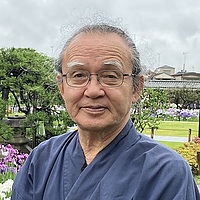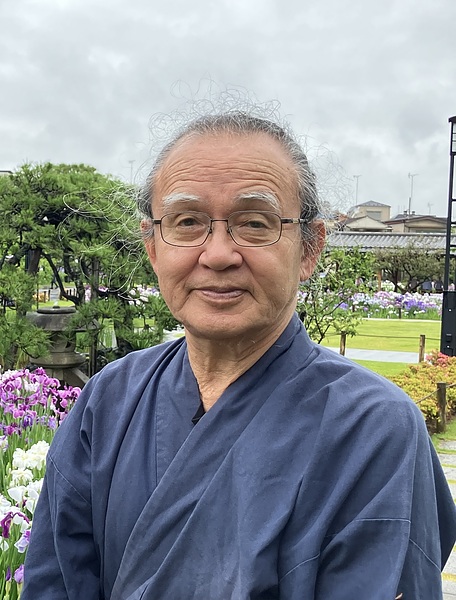英検1級道場-英検準1級の過去問は最強の教材です

英検の問題は、級に関係なく、一定の種本があり、それを料理して使いまわしている気配が感じられるのです
典型的なのが、教育の比較を述べた記事です
2級 2015-3 Educating Finns フィンランドの教育:先生の自主性を重んじる、生徒間の公平性、考える力
準1級 2015-2 Shagnhai's Schools 学力偏重で社会に出て役に立たない若者を生む
1級 2016-3 Teaching gifted children 出来の悪い子の底上げをする中でできる子が取り残されている
これらは根っこの部分でつながっており、種本があるのではないかと思われます
それを、級のレベルに従ってRewriteしたりして使っていると想像します
それぞれ、テキストを貼り付けます
■2級:
Educating Finns
Finland, a country in northern Europe, has been ranked as having the highest quality of life in the world. In particular, Finland has been attracting attention for the success of its schools. Since 2000, the country often appears near the top of an international survey of educational standards called PISA. This survey measures the academic level of 15-year-olds around the world in science, math, and reading once every three years.
What surprises many people about Finland's success is that the country is so different from the others that come at the top of the survey. Those countries' schools generally emphasize competition between students and between schools, and they often have long hours of study, much homework, and frequent tests. The success of this educational style has led to more countries introducing such competition into their own education systems. Finland, however, has taken a different approach to education.
The Finnish government requires no standard textbooks or tests. Rather, teachers are allowed to plan lessons using whatever materials they think will be best for their students.
Moreover, students are not required to do much homework. In fact, the average 15-year-old studies less than 30 minutes outside of school each day. A student's academic performance does not affect which classes or schools that student attends, and the country has almost no private schools. All these policies are the opposite of those being adopted by other countries. The aim of this system is to promote equality between students instead of focusing on high scores.
In order to create equal opportunities for each student, the Finnish government relies greatly on individual teachers and trusts them to make the best decisions for their classes.
These teachers are, in turn, rewarded with high salaries and social status. This creates strong competition for teaching jobs, so only the most highly trained and qualified candidates can become teachers. This focus on students' needs and high-quality teaching has led to Finland's success. Seeing the strong results of these methods, some countries have begun to take a second look at their approach to teaching. Although education systems vary from one country to the next, all governments share the desire to provide the best education they can to their students.
■準1級
(D) Shanghai 's Schools
An international assessment in 2013 showed that Shanghai's teenagers came out on top in math, science, and reading. Some years earlier, schools in Shanghai had been struggling, so government officials invested heavily in the education system to turn things around.
Teachers now earn high salaries and are given bonuses for achieving good results. Also, highly qualified, successful teachers from strong schools in the city are transferred to lower-performing schools to boost achievement there. Some schools in other countries are now copying the Shanghai model.
There has been criticism, however, that children in Shanghai are paying a high price for their top scores. Some critics argue that the methods used focus too much on preparing schoolchildren for tests rather than encouraging student creativity and critical thinking. As a result, the students are inadequately prepared for the workplace when they graduate.
■1級
Teaching Gifted Children
Students in the United States are barely reaching the global average on scholastic achievement tests. To remedy this, legislators have implemented a number of policies designed to bring low-achieving students up to a minimum standard. Although this is an admirable goal, critics claim the policies have had an unintended consequence. New educational guidelines have been introduced to establish baseline expectations, and schools are increasingly devoting large proportions of their budgets to ensuring these benchmarks are met. Gifted students, however, appear to have been lost in the shuffle. Policymakers, it seems, were so focused on improving the scholastic ability of low achievers that they neglected to ensure the needs of high-achieving students were being adequately catered to. The academic performance of the latter group has therefore suffered significantly.
David Lubinski, a psychology professor at Vanderbilt University in the United States, believes this may hurt the nation's competitiveness. He tracked the educational achievements of 320 precocious youths over a 25-year period. Now in middle age, 44 percent of those students have earned doctoral degrees-compared with just 3 percent of the overall population-and most have succeeded in their chosen fields.
This generation, however, was lucky: their abilities were acknowledged, and they were given opportunities to engage their potential. In the current educational climate, such students are less likely to be recognized, let alone supported.
According to Lubinski, by targeting the lowest common denominator, the country is overlooking the talent it desperately needs to maintain its economic standing.
As funding for public programs for gifted children shrinks, places in them are increasingly in demand. Well-off families can afford to hire tutors to give their children an edge on placement tests or pay for private institutions offering gifted programs-options that are generally out of reach for low-income families.
However, an approach known as "differentiated instruction" is being increasingly implemented to make things as fair as possible. Gifted children have traditionally been instructed separately in so-called gifted pull-out programs, but some schools have begun integrating these children with the rest of the student population. Curriculums are tailored to a diverse array of abilities, and methodologies emphasize small-group projects. Advanced learners receive enrichment materials but are not segregated from their peers. This ensures that educational benefits are not limited to any one group of students.











